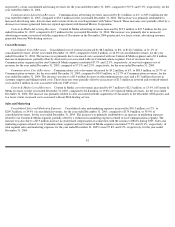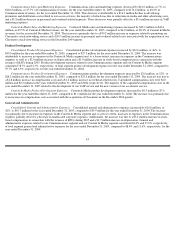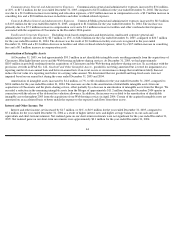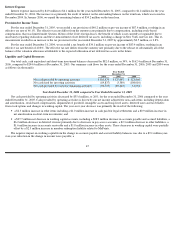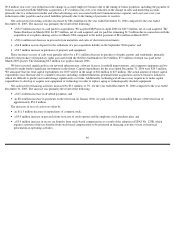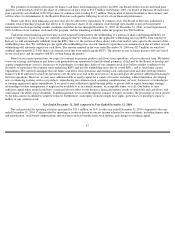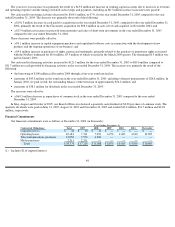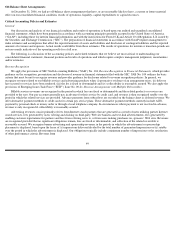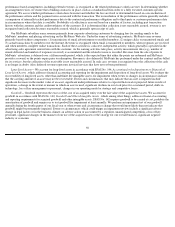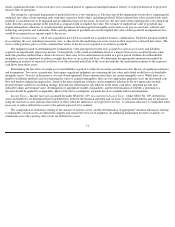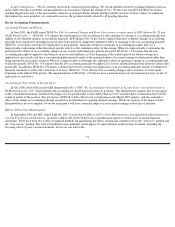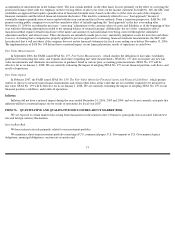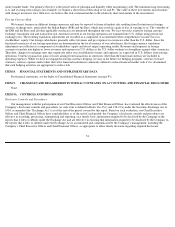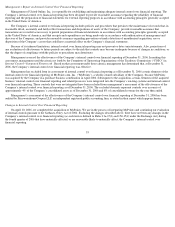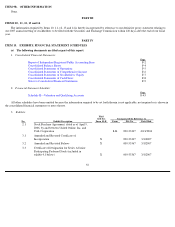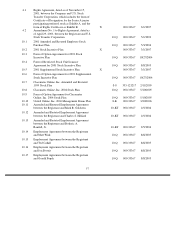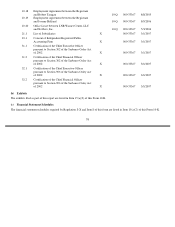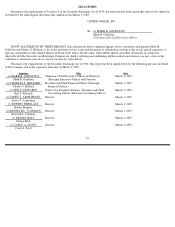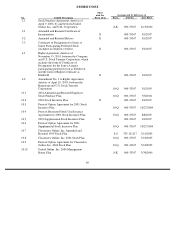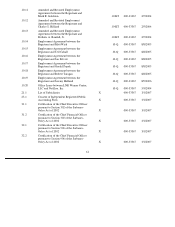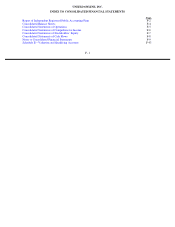Classmates.com 2006 Annual Report Download - page 53
Download and view the complete annual report
Please find page 53 of the 2006 Classmates.com annual report below. You can navigate through the pages in the report by either clicking on the pages listed below, or by using the keyword search tool below to find specific information within the annual report.
Legal Contingencies— We are currently involved in certain legal proceedings. We record liabilities related to pending litigation when an
unfavorable outcome is probable and management can reasonably estimate the amount of loss. We have not recorded liabilities for certain
pending litigation because of the uncertainties related to assessing both the amount and the probable outcome of those claims. As additional
information becomes available, we continually assesses the potential liability related to all pending litigation.
Recent Accounting Pronouncements
Accounting Changes and Errors
In June 2005, the FASB issued SFAS No. 154, Accounting Changes and Error Corrections—a replacement of APB Opinion No. 20 and
FASB Statement No. 3
. SFAS No. 154 changes the requirements for the accounting for and reporting of a change in accounting principle and
applies to all voluntary changes in accounting principle. APB Opinion No. 20 previously required that most voluntary changes in accounting
principle be recognized by including in net income of the period of change the cumulative effect of changing to the new accounting principle.
SFAS No. 154 requires retrospective application to prior periods’ financial statements of changes in accounting principle, unless it is
impracticable to determine either the period-specific effects or the cumulative effect of the change. When it is impracticable to determine the
period-specific effects of an accounting change on one or more individual prior periods presented, SFAS No. 154 requires that the new
accounting principle be applied to the balances of assets and liabilities as of the beginning of the earliest period for which retrospective
application is practicable and that a corresponding adjustment be made to the opening balance of retained earnings for that period rather than
being reported in an income statement. When it is impracticable to determine the cumulative effect of applying a change in accounting principle
to all prior periods, SFAS No. 154 requires that the new accounting principle be applied as if it were adopted prospectively from the earliest date
practicable. In addition, SFAS No. 154 makes a distinction between retrospective application of an accounting principle and the restatement of
financial statements to reflect the correction of an error. SFAS No. 154 is effective for accounting changes and corrections of errors made
beginning in the March 2006 quarter. The implementation of SFAS No. 154 did not have a material impact on our financial position, results of
operations or cash flows.
Accounting for Uncertainty in Income Taxes
In July 2006, the FASB issued FASB Interpretation No. (“FIN”) 48, Accounting for Uncertainty in Income Taxes—an interpretation of
FASB Statement No. 109
, which clarifies the accounting for uncertainty in income tax positions. This Interpretation requires that we recognize
in the consolidated financial statements the impact of a tax position that is more likely than not to be sustained upon examination based on the
technical merits of the position. The provisions of FIN 48 will be effective for us beginning in the March 2007 quarter, with the cumulative
effect of the change in accounting principle recorded as an adjustment to opening retained earnings. While our analysis of the impact of this
Interpretation is not yet complete, we do not anticipate it will have a material impact on our retained earnings at the time of adoption.
Effects of Prior Year Misstatements
In September 2006, the SEC issued SAB No. 108, Considering the Effects of Prior Year Misstatements when Quantifying Misstatements in
Current Year Financial Statements , in order to address the observed diversity in quantification practices with respect to annual financial
statements. There have been two widely-recognized methods for quantifying the effects of financial statement errors: the “roll-over” method and
the “iron curtain” method. The roll-over method focuses primarily on the impact of a misstatement on the income statement, including the
reversing effect of prior year misstatements, but its use can lead to the
52


